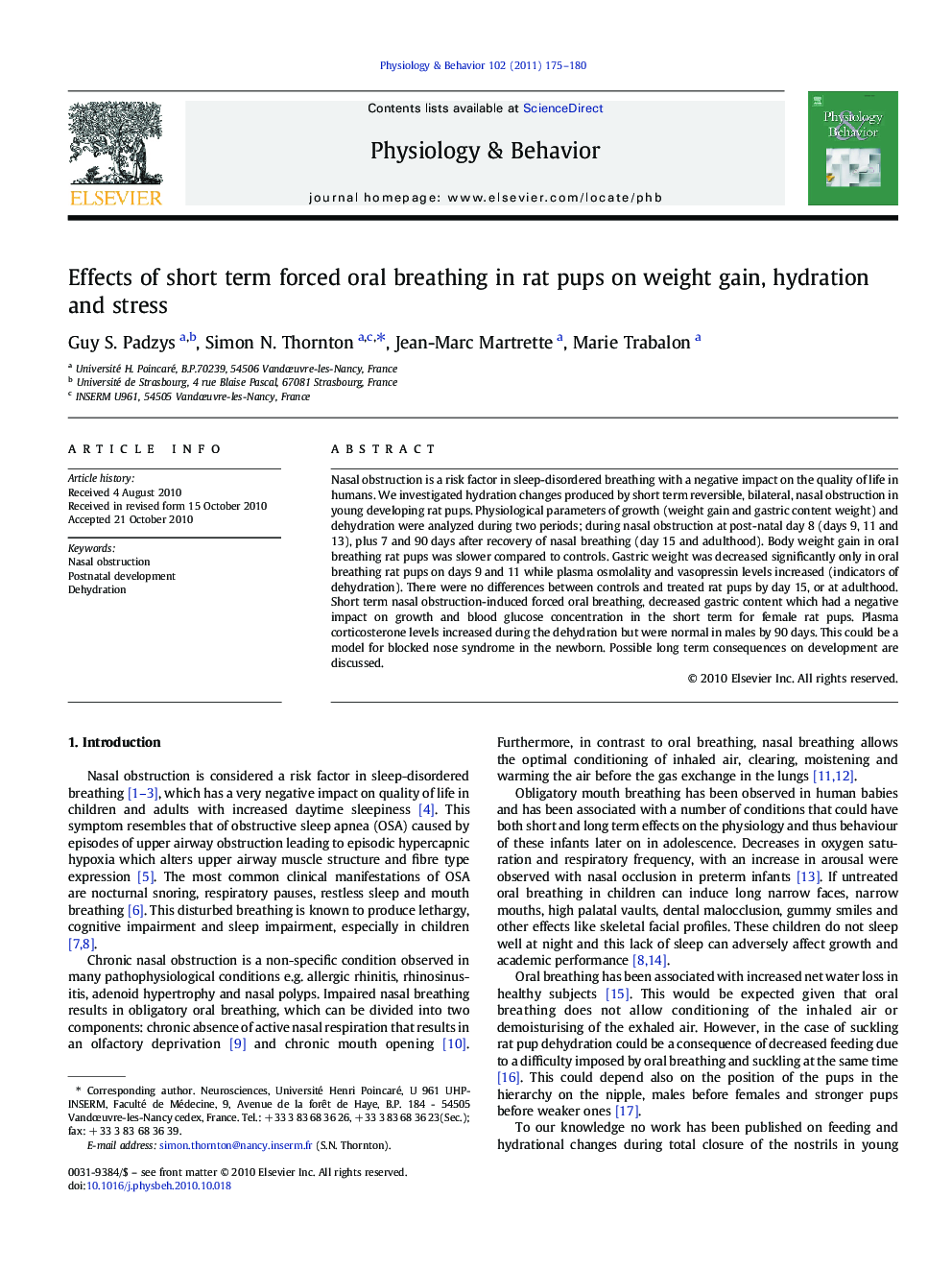| Article ID | Journal | Published Year | Pages | File Type |
|---|---|---|---|---|
| 5925717 | Physiology & Behavior | 2011 | 6 Pages |
Nasal obstruction is a risk factor in sleep-disordered breathing with a negative impact on the quality of life in humans. We investigated hydration changes produced by short term reversible, bilateral, nasal obstruction in young developing rat pups. Physiological parameters of growth (weight gain and gastric content weight) and dehydration were analyzed during two periods; during nasal obstruction at post-natal day 8 (days 9, 11 and 13), plus 7 and 90Â days after recovery of nasal breathing (day 15 and adulthood). Body weight gain in oral breathing rat pups was slower compared to controls. Gastric weight was decreased significantly only in oral breathing rat pups on days 9 and 11 while plasma osmolality and vasopressin levels increased (indicators of dehydration). There were no differences between controls and treated rat pups by day 15, or at adulthood. Short term nasal obstruction-induced forced oral breathing, decreased gastric content which had a negative impact on growth and blood glucose concentration in the short term for female rat pups. Plasma corticosterone levels increased during the dehydration but were normal in males by 90Â days. This could be a model for blocked nose syndrome in the newborn. Possible long term consequences on development are discussed.
Research HighlightsâºNasal obstruction forces 8 day old rat pups to breath through their mouths. âºThis increases water loss through oral respiration. âºIt decreases feeding and drinking through reduced suckling. âºThe induced dehydration increases osmolality plus vasopressin and stimulates stress.
